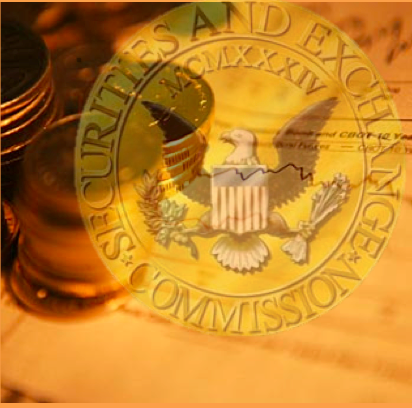Section 13(f) of the Securities and Exchange Act was passed by Congress in 1975 in order to provide the public with information regarding the securities holdings of major institutional investors. The reasoning behind this move was that greater disclosure as to the investments of institutional investors would increase investor confidence in the integrity of the United State securities markets (Source: SEC website). The disclosures are made by way of Form 13F filings, which are due to be filed quarterly within 45 days of the end of a quarter. What they actually disclose provides some interesting insight into the workings and thinking of institutional investor managers.
Use of Interstate Commerce
As to who needs to file Form 13F, the SEC explains: Institutional investment managers that use the United States mail (or other means or instrumentality of interstate commerce) in the course of their business and that exercise investment discretion over $100 million or more in Section 13(f) securities must file Form 13F. It is curious as to the wording of that use the United States mail (or other means or instrumentality of interstate commerce) in the course of their business since in reality there is not an institutional investment manager who does not utilize such means of interstate commerce given the fact that the Internet is deemed to be just such an instrumentality.
Institutional Investment Managers
The manager under discussion in Section 13(f) is a business entity or individual that invests in or buys and sells securities for its own account. Banks, insurance companies and brokers are examples of such entities as are corporations and pension funds that manage their own portfolios. But the secondary definition requires the element of exercising investment discretion over the account of any other natural person or entity. In this case, the trust department of a bank meets the criteria as does an investment adviser who manages mutual funds, pension plan assets or private accounts.
Not just managers overseeing the threshold amount in the private sector must file Form 13F but also a person who exercises investment discretion over a state or municipal pension fund must comply since that individual also meets the definition of an institutional investment manager. Person within the meaning of the act includes a natural person, company, government, or political subdivision, agency, or instrumentality of a government (See Section 3(a)(9) of the Securities Exchange Act (defining person) and SEC Release No. 15292 (Nov. 2, 1978).
A quick glance at the 2014 Q2 Form 13F filings of some of the biggest hedge fund managers reveals that they are still bullish on technology and health care, and that most of them invest in the same stocks!
David draws on 20+ years’ experience in both legal practice and in business services delivery since his own call to the Bar in 1989. With several years in the startup environment, including as a co-founder in the legal tech space specifically, he brings a unique and timely perspective on the role of data, automation and artificial intelligence in the modern and efficient delivery of services for legal consumers. Having been both a corporate buyer of legal services and a services provider, he identifies the greater efficiency and value that can be achieved in legal operations for corporate buyers especially.
An attorney, David worked for law firms Pinsent Masons and Linklaters in London before moving to New York to join Credit Suisse. As CAO, he helped negotiate & execute the relocation of Credit Suisse into its new NYC global HQ. Subsequently, David directed major global outsourcing, shared sourcing, HR operations & process efficiency initiatives including the digitization of records, the global roll-out of PeopleSoft HRMS & Y2K. David has worked extensively in the UK, US, Philippines, India and China markets in the areas of data management, human resources and business process outsourcing.
Most recently, David has been successfully investing in and serving as an advisory board member of several legal services start-ups including a cloud-based solution for legal process automation and e-filing; and a technology solution for large-scale capture of court and other public data used for litigation analysis, among others.
David graduated from the University of Manchester with Honors in Law and Bar School (College of Legal Education) in London, and has been a member of Middle Temple since 1989. He is the founder and former Chairman of The Global Sourcing Council.
Member: Bar of England & Wales, ABA, NYCBA, ACC, DRI









